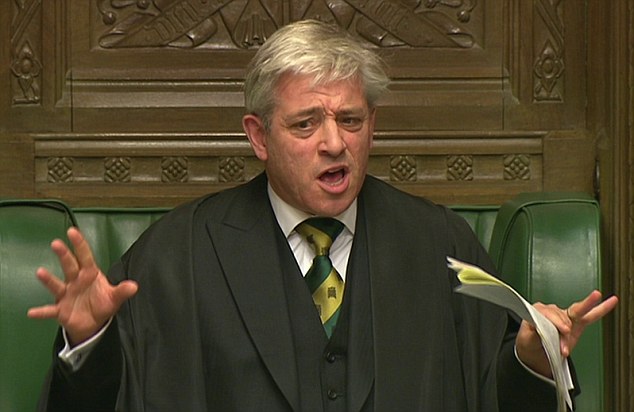
It has long been tradition for speakers of the House of Commons to be granted a peership in the upper house as an acknowledgement of their service following their retirement. Normally, such events pass without tribulation but recent attempts for former Commons speaker John Bercow to follow the same path have been met with antipathy and garnered significant media attention. But why is Bercow such a controversial figure? And why are so many averse to his fulfilment of tradition through the receipt of a Lordship?
The first meaningful anomaly to what has conventionally been seen as a rite of passage for retiring speakers can be found in the spurning of Bercow by Prime Minister Boris Johnson. As a result, Bercow was not, as is tradition, granted a peership by the Prime Minister, but had to be nominated by opposition leader Jeremy Corbyn. This consolidated accusations of Bercow as a left-leaning remainer who, despite being a Conservative MP, has always seemed to favour the opposition benches.
Johnson was therefore easily able to justify dismissing the possibility of a ‘Lord Bercow’, with his argument augmented by the speaker’s chequered past, tarnished with accusations of bullying and overstepping his constitutional role. But was this attempted character assassination simply a disguise for political manoeuvring? As already mentioned, despite the conventionally neutral role of the speaker, Bercow appeared publicly in the chamber to favour positions that were both left-leaning and in favour of remaining in the European Union.
Unsurprisingly, this generated great distaste towards the speaker amongst Conservative and pro-leave elites, leaving Bercow to conclude that the amalgamation of bullying accusations and bad press were part of a coordinated attack to keep him out of the Lords, where he may be able to exert yet further influence over parliamentary events.
The question of whether keeping Bercow out of the Lords is due to the suitability of his character or solely political motivations ultimately comes down to whether you believe he overstepped his constitutional duties as speaker due to his role in the frustration of the Brexit process. Such accusations reached their peak in 2017, when he denied Theresa May’s government a vote on its Brexit deal without significant amendments. Those adamant that his future is not in the upper chamber have argued that such actions are demonstrative of a scandalous overreach beyond the remit of his role, thereby tainting the sacred neutrality that elevates the office of speaker above the rabble of the Commons.
However, it is also important to consider that, during his time as speaker, a trend towards the modernisation of an archaic house which seemed out of place in the 21st century further sought to preserve and enhance the democratic rights of individual members. As such, Bercow’s motivation could have been one of purely democratic intentions, simply ensuring that the right of the majority in the House of Commons (most of whom opposed the Brexit process and wanted to inflict upon it further scrutiny) to be heard was upheld, as was his role.
Despite this, for someone so centrally located in the public eye, with his near-celebrity status sensationalising the role of speaker worldwide, people’s opinions are more likely to be formulated based on their perceptions of Bercow in the chamber: either as a bully or a defender of democracy than by political manoeuvrings within the Westminster bubble. But in an epoch of intense public scrutiny of our public representatives, it is rare to find a Member of Parliament with a scrupulous record in both the private and public spheres.
Should Bercow, therefore, be granted a peership based on the trend of demerits amongst his parliamentary colleagues? Or is this debate indicative of the need to cleanse the pinnacle institution of British representation of the anachronistic attitudes and brutish behaviours lingering in its halls? Whether such a revolutionary speaker would be comfortable in an institution more antiquated and governed by convention then the House of Commons is another matter altogether, but what is clear is that his route there will be as raucous as any Prime Minister’s Questions he oversaw during his time in the lower chamber.
Written by Grace Hart



Average Rating